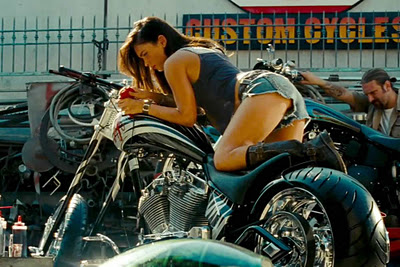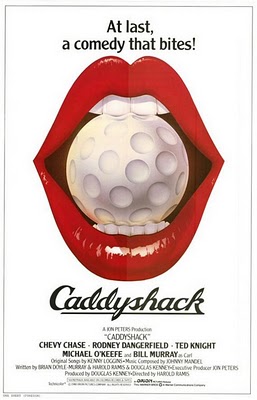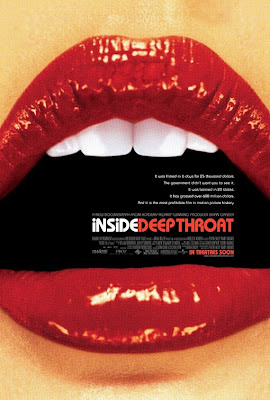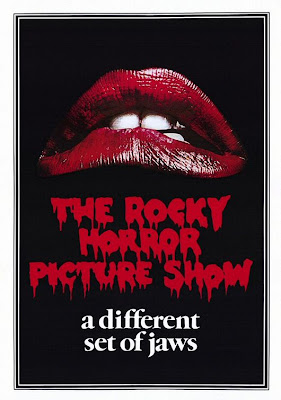November 2011
Berkeley, CA
An Open Letter to Pixar
Dear Pixar Creative Team:
I adore your films. Want proof? My car is named Dory. I have Boundin’ posters hanging in my house. My partner and I mentioned both a jackalope and a delay fish in our wedding vows. We are fans.
I know that you are aware that last year,
Toy Story 3 received criticism for a few lines and moments that seem sexist and homophobic.
What you may not know is how to fix this situation, or why you should bother.Let me briefly offer you answers to both of those questions:
1) How to fix this: I want you to hire a consultant to read your scripts and look at your storyboards. More on that later.
2) Why you should bother:
Here’s the thing. Your movies are funny, warm, moving, lively, and brilliant. And yet every so often, they contain a throwaway joke – something that doesn’t forward the plot, something that you don’t need! – that hurts kids.
Let me repeat. You are putting in jokes that aren’t necessary for the scripts, that no one will miss, and that hurt kids.
Here are some examples just from Toy Story 3 and Ratatouille:
A) Making fun of boys who transgress gender lines hurts kids.
In Toy Story 3, Ken laments, “Why do people always call me a girls’ toy?”, and he’s laughed at for having “girl’s handwriting.” What you are teaching here is that 1) girl’s toys and handwriting aren’t as good as boy’s toys & handwriting, and thus 2) girls, and feminine boys, just aren’t as good as masculine boys. This is called gender policing, homophobia, and misogyny. It hurts kids. And you know what? This joke wasn’t necessary. No one would have enjoyed Toy Story 3 one whit less if the homophobia was left out. You make people laugh in plenty of other wonderful ways in every movie – why do it at someone’s expense?
B) Telling stories where women need to be rescued hurts kids.
In the end of TS3, Jessie is “saved” by Buzz in a very obviously cliched and evocative pose, like in an old western. You seem to have put this in as the final reason that Jessie falls for Buzz. Why bother? Jessie was a perfectly strong female character in her own right, and she already clearly liked Buzz. There was no reason to set her up as a damsel in distress – especially because this image hurts kids. Damsels in distress create the expectation that women are powerless and need to be saved by men, which damages both girls and boys by 1) teaching them that the roles of Savior and Damsel are the most important roles they can have and 2) teaching girls that they can’t take care of themselves.
C) Showing men kissing women against their will hurts kids and leads to date rape.
Folks, in Ratatouille, there are THREE females – two characters and one bridal caketopper – that are kissed against their will. Each of these is presented as humorous or romantic. Are you kidding me? When kids see these images, 1) they learn that when girls say no, it is romantic or funny to kiss them anyway, which can lead directly to date rape. 2) Girls learn that what they want or say is not important, and that what a guy really wants is for them to put up a half-hearted fight and then submit. Is this really what you want to be teaching? I fervently hope that Ratatouille is the last time we will ever see that kind of thing in a Pixar movie.
D) Showing bikini-clad, voiceless women as supreme objects of desire hurts kids.
Night and Day was a gorgeous little gem of a film. But why did your two transparent beings have to fight over hot skinny bikini girls? Why not chocolate cake, or a bouquet of balloons? Are we in Tex Avery’s 1950s? From this story (and
Knick Knack before it) kids learn that hot skinny bikini girls are the most important prize in the world. Girls learn that in order to be interesting they need to be skinny, half-naked, and sexualized. This leads to anorexia, depression, and so much more,
as documented in this study:
Sexualization of Girls is Linked to Common Mental Health Problems in Girls and Women.
E) Making fun of people who are physically different hurts kids, and
F) Making the bad guy brown hurts kids.
Folks, you did both of these at once with your short, dark-skinned villain in Ratatouille. Again, is it the fifties? This was especially surprising considering that none of your other villains are dark-skinned, and your truly inspiring and groundbreaking portrayals of disability in Finding Nemo.
On the good side, we had some very positive possibly-not-Caucasian characters in
Up and
TS3. So I think you’re on the right track. Now how to keep going in that direction?
SO, that consultant.
Pixar Creative Team, you are experts and brilliant leaders in your field. You tell wonderful stories and create beautiful works of art. You don’t need to also be experts in fighting homophobia, misogyny, racism, ableism, or sexism.
What you DO need to do is to hire someone who is that expert.
Please, I beg of you: hire a consultant – someone experienced in noticing sexism, racism, heterosexism, and ableism – to look at your scripts and make sure that you are aware of the impact of your throwaway jokes. You need SOMEBODY on your payroll who can look at each story in the earliest phases, scripts and storyboards, and who can say, “that’s sorta sexist. Do we really need it?”
Because you don’t.
Your films are masterpieces. Please, do the right thing, and take out the unnecessary jokes that hurt kids.
Sincerely,
T. Bookstein
T. Bookstein has been noticing misogyny, racism, heterosexism, ableism and other “little” problems in the media for about ten years. She works in higher education at her dream job. She and her partner are raising two awesome sons, and one orange cat.













